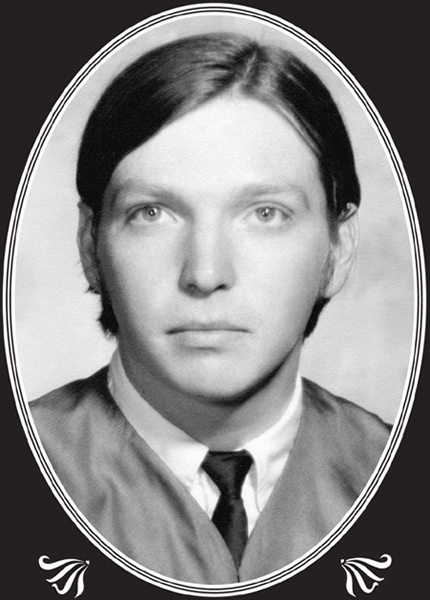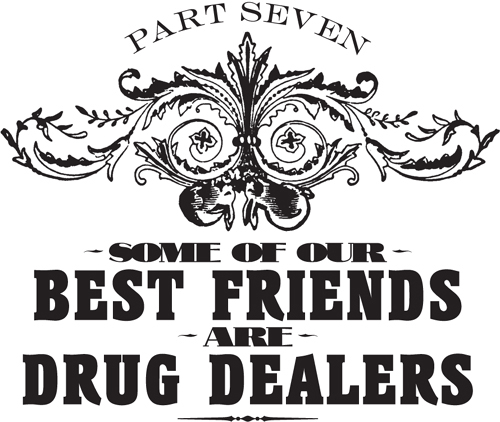The Dirt (32 page)
Authors: Tommy Lee

The next day, I resolved to clean up so that I could write some music for the album, and maybe even call my grandfather and beg him to forgive my self-centeredness. The first song I wrote was “Nona,” which was the name of my grandmother. Tom Zutaut stopped by the house and listened to it—“Nona, I’m out of my head without you”—and tears welled up in his eyes. I often have nightmares about my grandmother’s sickness and funeral, because not being there for her and my grandfather then is one of the things I regret most about my life.
Tom wasn’t working at Elektra anymore. He had moved to Geffen and had signed Guns N’ Roses. He wanted me to produce their record and see if I could give the punk-metal they were playing at the time a more commercial, melodic edge without sacrificing credibility. They were just a punk band, he told me, but they were capable of being the greatest rock-and-roll band in the world if someone could help them find the melodies to take them there. I was in too much agony trying to slow down my drug intake to consider the idea, but Tom’s confidence motivated me to write for my own album. I bought an old Bernard Falk book from 1937 called
Five Years Dead
, which inspired the song of the same name, and focused on kick-starting my brain. I knew my window of sobriety would be brief, so I had to work quickly.
Like
Theatre of Pain, Girls, Girls, Girls
could have been a phenomenal record, but we were too caught up in our own personal bullshit to put any effort into it. You can actually hear the distance that had grown between us in our performance. If we hadn’t managed to force two songs out of ourselves (the title track and “Wild Side”), the album would have been the end of our careers.
In the studio, we were each mixing our drugs with something we had never combined them with before: guilt, denial, and secrecy. And those three words are the difference between an addict and a hedonist. Tommy was in Heatherland, which wasn’t just a land of paradise but also of discipline, where he had to hide his drug use from her. Because of it, he was becoming a stressed-out wreck. Vince was trying to stay sober but failing miserably, distracting himself from his own unhappiness with girls and mud wrestling; and Mick was up to something behind our backs, though none of us had any idea what that was. In the months before we returned to the studio, we were so busy fighting our own demons that we completely forgot about Mick. When we saw him again, it looked like someone had sewn his head onto the body of a Samoan wrestler: his arms and neck were so bloated we worried he wouldn’t be able to reach his guitar frets. He always pretended like he was too old to party with us, that he had done his share of drugs as a teenager, but something was up. And he wasn’t telling us what.


fig. 3

Nikki’s grandmother Nona


fig. 1


B
ack in my day, baling rope wasn’t made out of wire. It was real rope, about a quarter-inch wide if you laid it out flat. It was closer to twine, really, and we used it to bale the hay. I guess we also used it to hang my older brother.
My younger brother, Tim, and I made a one-and-a-half-foot loop in the baling rope and held it together with a slipknot. I threw the loop over the branch of an oak tree and tied the other end of the rope around the trunk. Tim found a five-gallon drum in my grandmother’s shed and placed it under the hanging noose. Then we made our older brother, Frank, stand on the drum, slipped the noose around his neck, and made sure it was good and tight. I kicked the drum out from under him, and we watched him swing.
We were the Indians: He was the cowboy. He screamed and struggled as he dangled in the air, and he kept grabbing at the noose with his hands, trying to loosen it. When we grew bored of running around him whooping and hollering, Tim and I headed inside.
“Where’s Frank?” Aunt Thelma asked. Aunt Thelma, who couldn’t have been more than five feet tall, was my grandmother’s most loyal daughter and lived with her until finally marrying at the age of fifty-five.
“Out there.” Tim pointed to the side yard.
“Oh my word,” Aunt Thelma gasped, and she ran out to the tree, lifted Frank up, and pulled the noose off his neck.
I was five years old. And I wasn’t messing around. I was born B.A.D.—Bob Alan Deal. People who have had near-death experiences always say they enter a tunnel, and at the end of the tunnel there is a light. I like to think that when you die, you go through the tunnel, and when you get to the other end, you are reborn. The tunnel is the birth canal, and the light at the end of the tunnel is the hospital maternity ward, where your new life awaits you. When someone has a near-death experience, where they see the light but don’t walk into it, there is a woman somewhere delivering a stillborn baby who was supposed to have that person’s soul.
I used to tell people that in a past life I was Buddy Holly, then I came back as Brian Jones of the Rolling Stones, and finally I returned to earth as Mick Mars. But I was never serious. That doesn’t mean I’ve ruled out the possibility of a past life, but I do wonder why people always believe they were a famous or historical figure, What happened to the chimney sweeps and beggars and housewives? Didn’t they get reincarnated, too? As for me, I was informed of my past lives by a wise old hippie burnout known as the Midnight Gardener, who used to come to my house in the Santa Monica Mountains and tend to my lawn every night at 1
A.M.
The Midnight Gardener told me that I had been the King of Borneo, a cannibal, and a slave who worked on the Great Pyramids of Egypt. I think I must have been some sort of womanizer and thief, because in this life I’m being punished for it: Women and money don’t like me. In fact, the former always seem to walk out of my life with all the latter.
From the time I hanged my brother, I knew what I wanted to with this life. Because later that week, Aunt Thelma took Frank, Tim, and me to the 4-H Fair in Hiers Park in Huntington, Indiana, where we lived. She bought us Popsicles, and we sat down in the grass to eat them and watch a concert. I was so young, I didn’t even know what a concert was. I saw a tall, skinny guy in a bright orange rhinestone cowboy suit and a white hat—much fancier than the cowboy outfit Frank had worn when I lynched him. The man on the stage introduced himself as Skeeter Bond, and he started singing. There were other cowboys playing guitar and drums behind him, making a lot of noise. My jaw dropped open, and I completely forgot about my Popsicle, which melted all over my clothes. I wanted to be him. I wanted to make music on a stage. I didn’t care what kind of music really. Music was music: It was all great, whether it was Skeeter Bond cowboy music or my mom’s Elvis Presley records.
That Christmas, my brothers and I ran downstairs in the morning to open our presents. There were long stockings hanging over the fireplace, and one of them had a tiny guitar strung with what were probably rubber bands. “That’s mine!” I yelled, and I grabbed it before anyone could take it from me. The following Christmas, when I was six, my mother bought me a Mickey Mouse guitar, which had mouse ears on the head and a little crank that I could turn to make it play Mouseketeer songs. But I wasn’t interested in Mouseketeer songs. I learned how to tighten the strings so that it sounded more like Skeeter Bond’s twangy guitar, and figured out how to play actual melodies on it.
